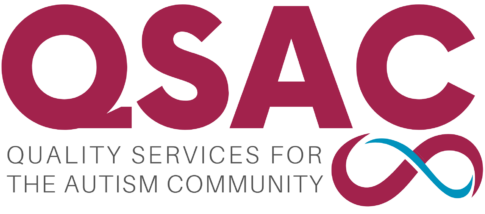About Applied Behavior Analysis
Applied behavior analysis (ABA) is the science of applying interventions based on principles of learning and motivation to promote socially significant behavior change and to demonstrate that the intervention(s) implemented are responsible for the change in behavior.
Most notably for QSAC, ABA interventions are the teaching methodologies used throughout our educational curriculum so that the individuals we serve may develop the skills necessary to live as independently as possible in the community. Teaching methodologies at QSAC typically target academic, social, self-care, vocational, and/or independent living skills. ABA interventions are also used within QSAC to address the occurrence of problem behavior, train staff on the implementation of specific strategies, and evaluate and improve the effectiveness of various organizational practices.
Baer, Wolf, and Risley (1968) outlined seven guiding dimensions within the field of Applied Behavior Analysis that practitioners should aspire to meet. At QSAC, we implement and evaluate our teaching strategies based on these seven dimensions.
-
Behavioral: Target behaviors are both measurable and observable
-
Analytic: Strategies used are demonstrated as the reason(s) for the change in the target behaviors through ongoing data analysis
-
Technological: Strategies used are completely identified and described so that a typically trained reader could replicate the strategies and produce similar results
-
Conceptual Systems: Strategies used are founded on and/or relate to basic behavior analytic principles
-
Effective: Strategies implemented produce a meaningful change in the target behaviors
-
Generality: Behavioral change proves to be durable over time, appears in a variety of contexts, or extends to a variety of behaviors
Outside of QSAC, ABA interventions are used to improve organizational systems in various workplace settings, address gambling behaviors and other addictions, improve health-related behaviors such as exercise and obesity, and assist in establishing a more sustainable environment.
ABA interventions are the teaching methodologies used throughout our programs to support the individuals we serve in developing the skills needed to support independent living and assist them in achieving their goals.
Baer, D. M., Wolf, M. M., & Risley, T. R. (1968). Some current dimensions of applied behavior analysis. Journal of Applied Behavior Analysis, (1), 91-97.
